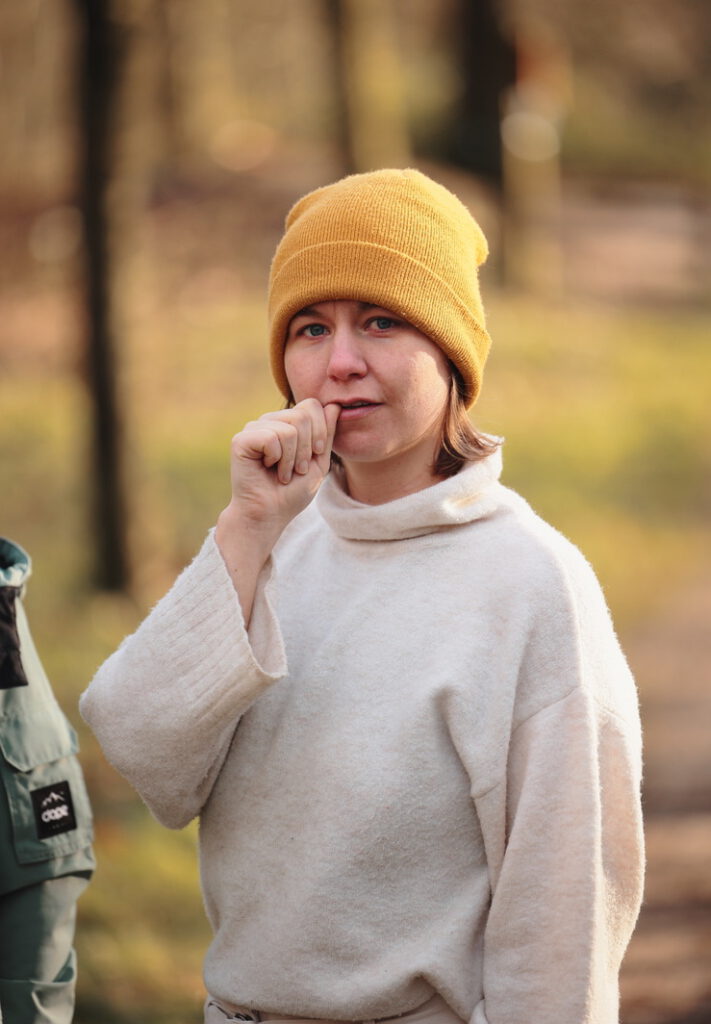
I was diagnosed with Autism at the age of 29 and this diagnosis has completely changed my life. The diagnostic process was thorough and going through the interviews, tests and psycho-education led to an inner inquiry. After nearly 30 years it was hard to discern what belonged to me, and what was a mask that I adopted in order to (try to) function in the world. I approached the diagnosis with curiosity, and experimented with behaviours. For example: the stereotypical rocking of the upper body as a stim (a self-stimulating behaviour that is repetitive in nature). What would actively adopting a stim like this do for my self-expression, or self-regulation, and emotional state? I realised how different my inner experience was from my outward composure. I could seem calm and collected, but experience a raging fire running through my veins, a feeling that could get an outlet through adopting stims.
The inner inquiry that followed the diagnosis came with gigantic liberation, but also with intense loss and grief. The life I had built based on my pre-diagnosis identity was one I loved, even when it burned me out and cost a lot of work. Additionally, I had to overcome fear of abandonment, being judged and finding acceptance in being different. Everything changed, and pre-diagnosis, change was something I actively tried to avoid. Rigidly managing my environmental circumstances to have a sense of control. I had to re-discover who I was, what I liked, and what I needed. I had to navigate a crumbling of my life as I knew it, while feeling incredibly incapable and overwhelmed.
But there was no way back. It was as if a veil had been lifted, and the liberation I felt made the struggles of this process worth it. To indicate the significance of understanding how your brain works, I often use an analogy:
It’s like having unique hardware but using incompatible software and an overpowered energy supply. My brain is designed to function differently, but the software and power I was given didn’t match, causing my system to overload and burn out.
To leave the computer analogy and turn towards brains: Having a neurodivergent brain means that the developmental curve is different from what is typical, from what the world expects of you. In some aspects, the neurodivergent brain is a powerhouse and much faster than typical. In other aspects, the neurodivergent brain is slower, or misses skills. Brains are plastic, and how they shape is highly depended on the interactions with the environment. But what if the world is not attuned to your pace? In my experience, this misattunement is traumatic and causes brain development to stagnate. As I unmasked and started to attune more and more to the needs of my brain, space opened up to heal all those ruptures. It felt as if I journeyed through my entire lifetime, ‘picking up’ and ‘updating’ very young parts to the here-and-now.
As I healed, the capacity to learn and engage with the world increased. I got more and more grip on my ‘user manual’, and learned how to treat myself and engage with the world in such a way that it worked for everyone involved. I found community and felt the power of having like-minded people around as the default: this saved so much energy! I got to integrate my highly analytical brain with my hypersensitive body and now use my strengths to empower others in their journeys to wholehearted value-based lives. Are you ready to develop the tools that will help you bring your superpowers into the world in an attuned and balanced way? And will you join me on this journey?